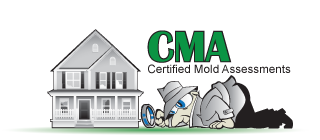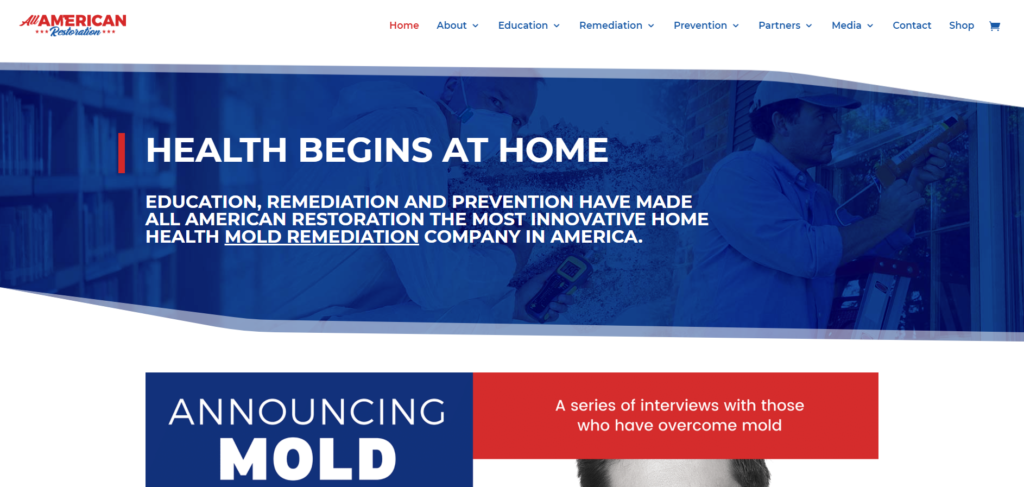Mold Remediation Company Resource Guide
Mold remediation can be a very technical process, depending on the degree of contamination. Use the resource guide below to help you choose the right company for your situation.
All American Restoration
888-668-MOLD
Florida Office : 1211 Hamlett Ave, Unit A, Clearwater Florida 33756
New Jersey Office: 1711 Ginesi Drive Suite 3, Freehold NJ 07728
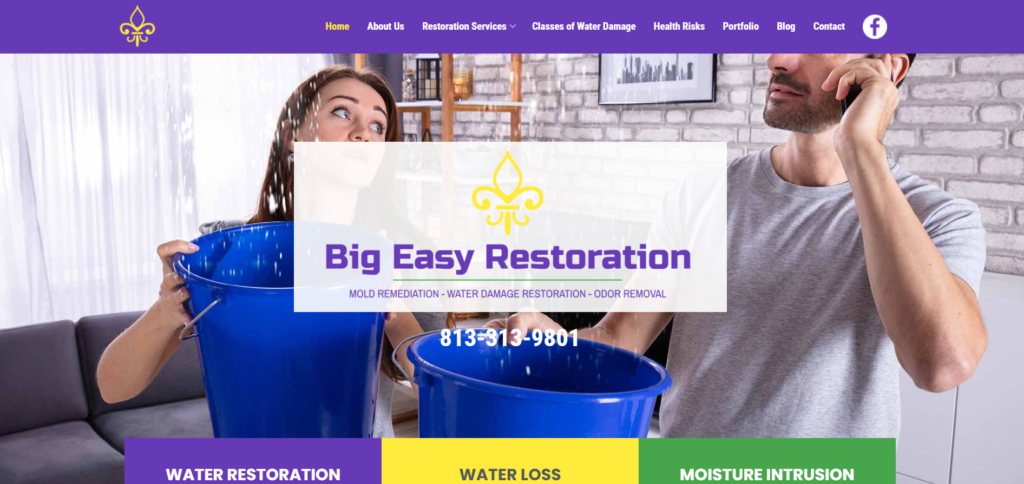
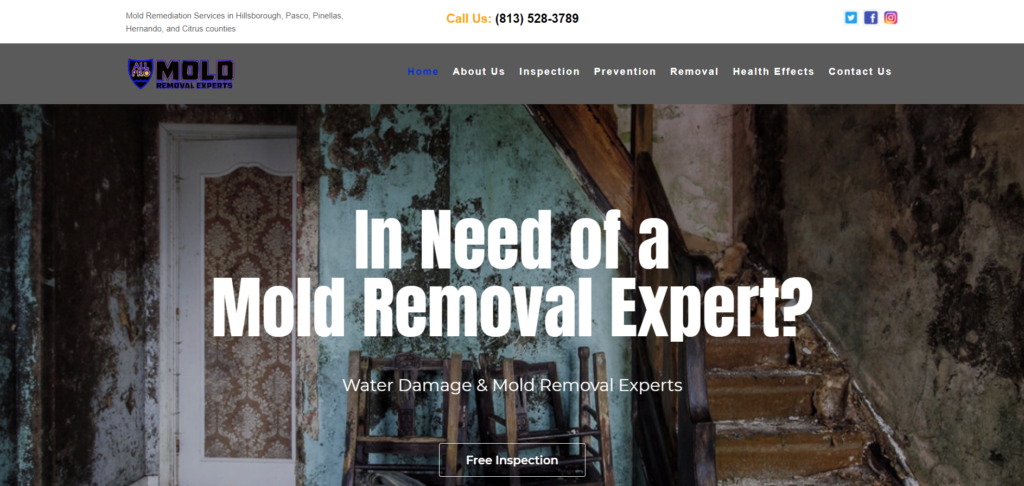
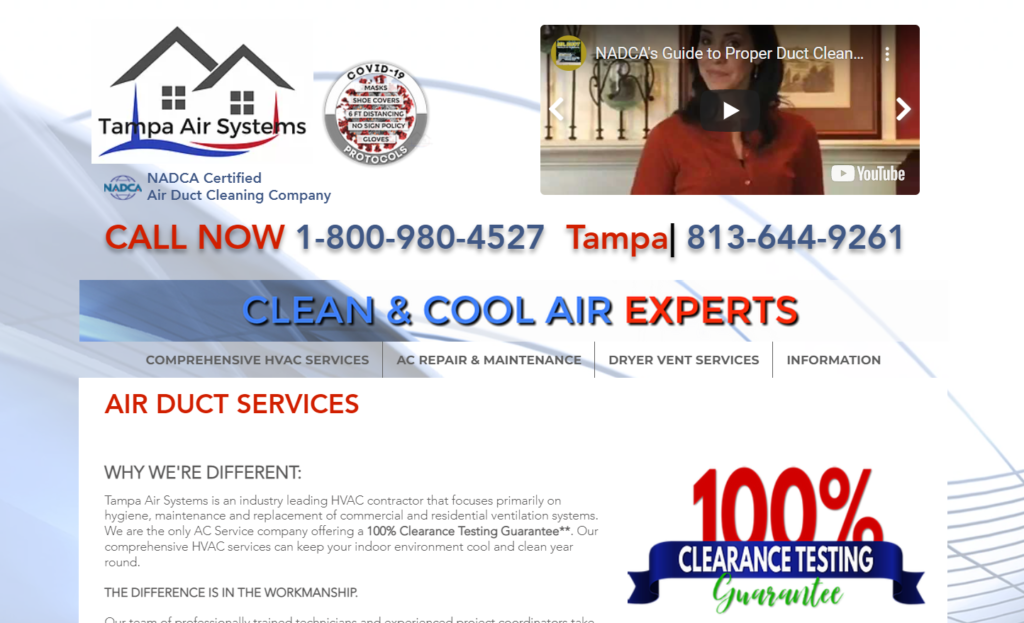
MOLD REMEDIATION CONTRACTOR QUESTIONNAIRE
Finding a company that understands the technical nuances needed to perform remediation for individuals with CIRS, Lyme Disease, autoimmune disease, and other chronic illnesses is very difficult. It is essential to work with a mold remediation company that genuinely understands working with all clients, especially individuals that are hypersensitive to their built environment.
Companies should use natural products with little to no VOCs, proper engineering controls, and building science to ensure that they remove the contamination sources to not cause additional damage and cross-contamination to the building.

Ask these seven questions when speaking with mold remediation contractors:
1. Does your company perform mold inspections and remediation?
- The answer should be no. Performing both is a conflict of interest and against the law in several states, including Florida.
2. Can you send me a list of your certifications and licenses?
- At a minimum, you want them to have licensed and certified project managers that oversee the day-to-day operations on job sites.
3. Do you require a mold inspection and testing before your remediation and after remediation is completed? Do you guarantee your work?
- The company should require a remediation protocol from a third party after performing a comprehensive inspection. Additionally, the initial inspector should complete any post-testing to guarantee the remediation performed. If the inspector fails the work, there should be no added cost to the homeowner for the remediation company to come back and do the work needed to finish the job, as long as the work falls within the original remediation plan provided.- Side note, post inspections should include both a visual inspection, moisture mapping, and testing. The testing protocols should mirror the samples collected during the initial inspection. A visual post-inspection only is not acceptable!
4. Are you familiar with ERMI and Mycotoxin sampling?
- If so, make sure they can give a general explanation of the importance of both. Again, it is crucial to work with a company that understands the different types of testing data.
5. Have you ever performed remediation for someone with CIRS, LYME, MCS, or autoimmune disease?
- Understanding the occupant’s needs is important. Working with this clientele type requires a different degree of remediation.
6. Are you familiar with fine particle remediation?
- This is an extensive cleaning procedure performed after the remediation of the source areas that involves a complete home wipe down and cleaning.
7. Will you be willing to go through the report with the mold assessment company that performed the assessment?
- There must be a collaboration between all parties involved so everyone understands the scope of work.
Remember, ultimately, you want to make sure they can get through these questions and direct technical questions to the assessor who performed the inspection and testing.
We are often asked the question, “If I have mold, can I clean it up myself or do I need to hire a professional mold remediation specialist?”
The answer is that sometimes you may be able to do it yourself and in some cases, you shouldn’t.
In order to determine what type of mold you have, it is recommended to first have the proper sampling and laboratory testing performed by a qualified company.
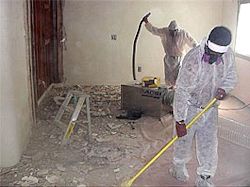
Cleaning mold can be more dangerous than you realize. Consult a trained professional for black mold removal.
Homeowners performing any surface cleaning should observe proper safety precautions such as the use of surgical latex gloves, goggles, and a N95 rated mask. If using a weak bleach solution, never mix with any compound other than water. Whether in the house or with basement mold remediation, thoroughly dry the affected area(s).
Many molds can be both pathogenic and toxic to people and pets. To ensure your health and safety and the eliminate the spread of mold spores, it is recommended that you follow guidelines of an approved authority. The Environmental Protection Agency (EPA) is a good source. At the EPA website you can find both suggested guidelines and registered products to use as a mold remover.
Before any remediation can be successful, the first step is to identify and correct the source of water or moisture.
If you don’t the mold will grow back.
